Tears Were Shed In Candoni
By Fr Niall O’Brien MSSC
When I came first to the island of Negros, nearly forty years ago now, Candoni was one of the remotest towns in Negros. It was a grueling two-hour journey into the mountains from Kabankalan. You had a choice: to go via Salong and Tapi or via Dancalan and Tabo. Either way it was a long journey and a hard road which reminded one in parts of pictures of the surface of the moon. The young priests have it a lot easier nowadays. I recall going there by bus and frequently deciding to travel on the roof, seated on sacks of rice or fertilizer rather than the cramped quarters inside. The only problem was that when we passed under trees we sometimes had to lie out flat lest we be swept off the roof by a low lying branch. As we approached a townlet we had to climb in through the windows while the bus was still moving because it was illegal to be traveling on the roof. My short stay in Candoni was caused by the fact that Fr. Eugene McGeough, the parish priest, was away on holidays in Ireland and I was to take his place.
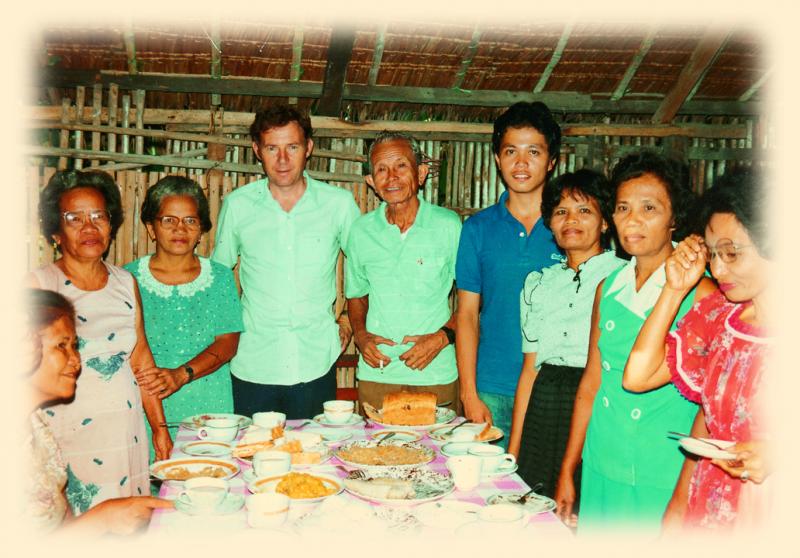

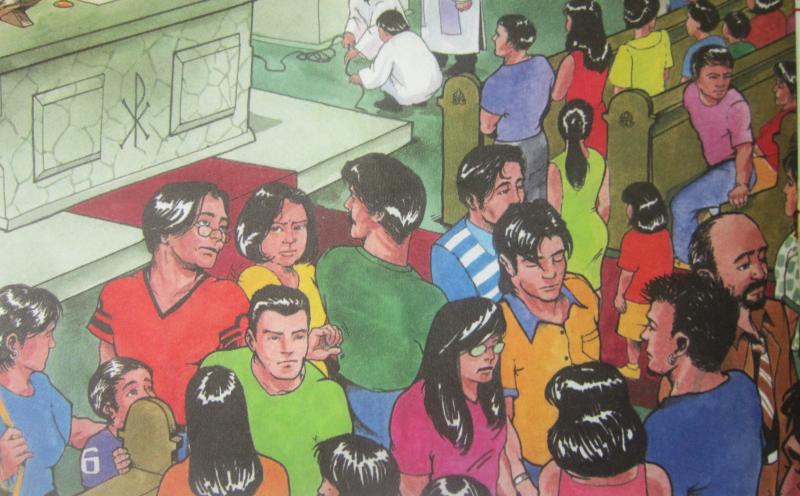
 Mariamabad is the place to go if you want to meet Catholics in Pakistan. Seamus O’Leary, a Columban lay missionary, took part in the annual pilgrimage to its famous Shrine of Our Lady last year. It was an interesting mix of faith, devotion, fun and business.
Mariamabad is the place to go if you want to meet Catholics in Pakistan. Seamus O’Leary, a Columban lay missionary, took part in the annual pilgrimage to its famous Shrine of Our Lady last year. It was an interesting mix of faith, devotion, fun and business.
 More than ten years have passed since the eruption of Mt. Pinatubo but for me the memory of that terrible day is still very vivid.
More than ten years have passed since the eruption of Mt. Pinatubo but for me the memory of that terrible day is still very vivid.
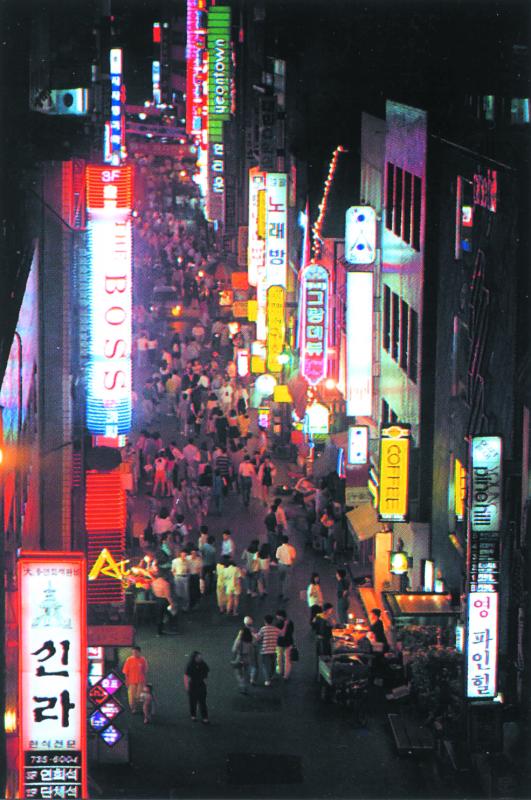 Sr Angela Battung, RGS has been a missionary most of her life. Now in Canada with older people, she looks back on her difficult years in Korea and the frustrating ministries she was involved in. Strangely enough it was at work with the prostitutes that grace almost became tangible and it was this work which she remembers with joy.
Sr Angela Battung, RGS has been a missionary most of her life. Now in Canada with older people, she looks back on her difficult years in Korea and the frustrating ministries she was involved in. Strangely enough it was at work with the prostitutes that grace almost became tangible and it was this work which she remembers with joy.


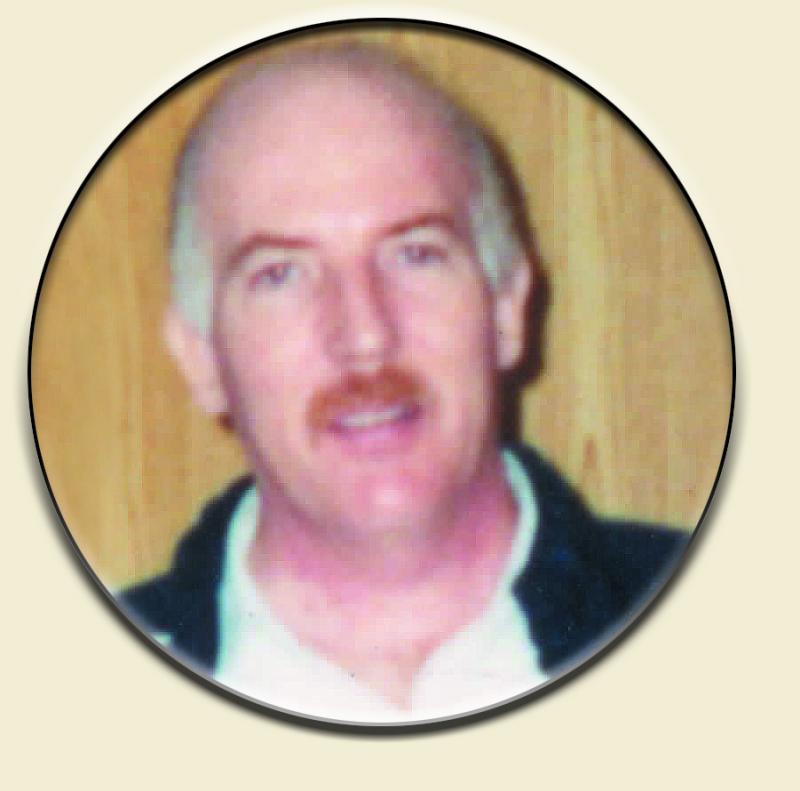 I came from a fairly typical Irish Catholic background and was educated at schools run by nuns, the Christian Brothers as well as a parochial school. When I first became interested in the priesthood in my early teens, it was in my own diocese that I was interested in serving. However, we received the Columban magazine, the Far East, so it was natural that I should begin to read the articles written by Columbans telling about the situations that they were working in. What impressed me was the lack of priests in all of these countries, the plight of the people who were not able to receive the Sacraments regularly and thus was born my missionary vocation.
I came from a fairly typical Irish Catholic background and was educated at schools run by nuns, the Christian Brothers as well as a parochial school. When I first became interested in the priesthood in my early teens, it was in my own diocese that I was interested in serving. However, we received the Columban magazine, the Far East, so it was natural that I should begin to read the articles written by Columbans telling about the situations that they were working in. What impressed me was the lack of priests in all of these countries, the plight of the people who were not able to receive the Sacraments regularly and thus was born my missionary vocation. Four years ago to this very day I was holed up in a dark motel room that the roaches had claimed for their own. This sort of environment was nothing new to me. I had walked away from a beautiful wife, two beautiful children, a beautiful home, a job, friends – everything. I had traded it all in for a bag of dope and a needle. I no longer believed in God or worshiped him. Instead I worshiped the heroin and the needle that delivered it. In reality what they delivered was a close brush with death and the prison cell I now call home – my only home, for there is no other.I never knew my father, who was Irish. My stepfather was Italian and my mother was Greek, so I learned the traditions of the Orthodox faith. But our primary religion was Catholic. I went to St. Jospeh’s, a Catholic grade school in New York City. I loved it there because the nuns and everyone else were very kind to me. They knew my home was a painful place. During gym they could see the bruises and cigarette burns on my arms and legs. I carry scars from the burns to this day.
Four years ago to this very day I was holed up in a dark motel room that the roaches had claimed for their own. This sort of environment was nothing new to me. I had walked away from a beautiful wife, two beautiful children, a beautiful home, a job, friends – everything. I had traded it all in for a bag of dope and a needle. I no longer believed in God or worshiped him. Instead I worshiped the heroin and the needle that delivered it. In reality what they delivered was a close brush with death and the prison cell I now call home – my only home, for there is no other.I never knew my father, who was Irish. My stepfather was Italian and my mother was Greek, so I learned the traditions of the Orthodox faith. But our primary religion was Catholic. I went to St. Jospeh’s, a Catholic grade school in New York City. I loved it there because the nuns and everyone else were very kind to me. They knew my home was a painful place. During gym they could see the bruises and cigarette burns on my arms and legs. I carry scars from the burns to this day.
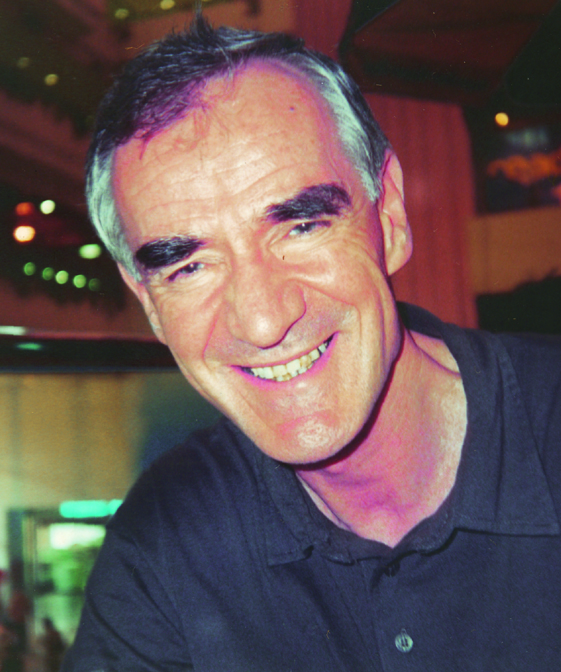 Fr. Brendan Lovett was interviewed by the Far East on his book A dragon not for the killing. Fr. Lovett is one of the leading theologians in Asia and this study on his thoughts on ‘consumerism’ will reward the reader with some very valuable insights. You may have to read it twice carefully, but it is worth it.
Fr. Brendan Lovett was interviewed by the Far East on his book A dragon not for the killing. Fr. Lovett is one of the leading theologians in Asia and this study on his thoughts on ‘consumerism’ will reward the reader with some very valuable insights. You may have to read it twice carefully, but it is worth it.